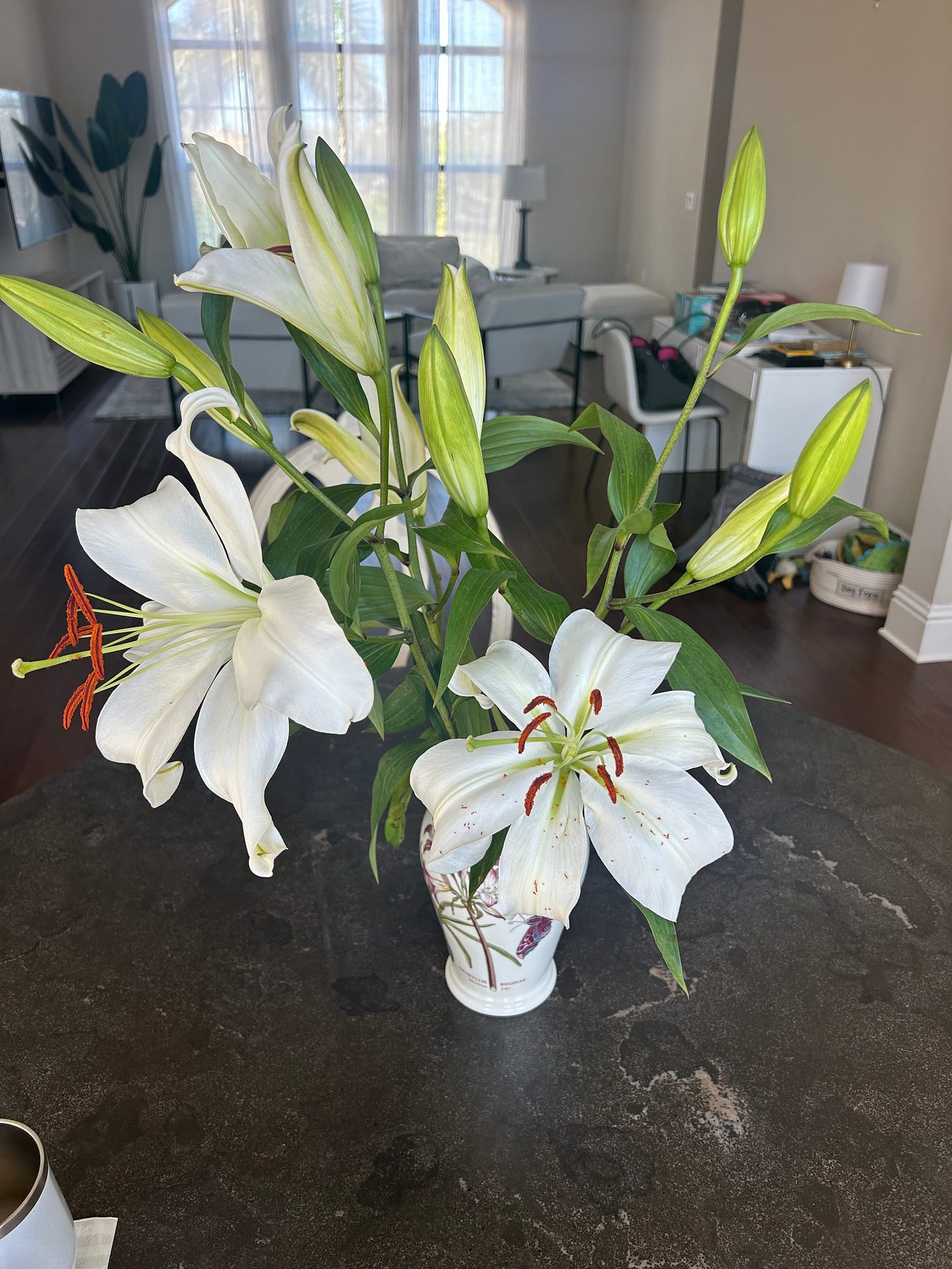Hi friends,
One of my primary anxieties is about how “quickly” it feels that time is passing by. One way to counter this worry is to find a state of flow in which one loses track of time. That’s the ideal mode of living this precious life, isn’t it? The idea is to find work, people, and places that make you come alive, that amplify your senses.
For me, reading and writing transport me to this (seemingly) unconscious state of immersion, free of thought, full of presence. Exercise and sweat also tend to get human beings to this sacred place.
During what activities do you lose track of time? Trying to optimize for more of this in your days adds meaning to life. There’s a reason athletes, artists, and musicians talk about the flow state in which they lose themselves in the moment. This state is dear and central to the human condition.
Finding and embracing the flow state is a theme in the international bestseller Ikigai: The Japanese Secret to a Long and Happy Life, which I just read. Many key ingredients in long, rich lives center on finding what puts you in this state where you’re completed focused on a single activity. The book’s highlights include: Keep busy with tasks that require focus and joy; move often; maintain a loving connection with other people and nature; and replace processed food and junk with healthy foods like salmon, rice, green tea, water, olive oil, vegetables, and nuts.
The authors interviewed people who have lived to 100+ years old. They urge us to simplify our lives by “pursuing what sparks joy” and to see “aging as an opportunity to keep working, keep smiling.” They celebrate life all the time, even little things. They celebrate birthdays together. They celebrate love and marriage and community progress. They find the small wins that many others might overlook or be too busy to appreciate fully.
A notable quote from one of the people interviewed:
“The best way to avoid anxiety is to go out in the street and say hello to people. I do it every day. I go out there and say, ‘Hello!’ and ‘See you later!’ Then I go home and care for my vegetable garden. In the afternoon, I spend time with friends.”
One commonality across all the interviews: People spend time in nature, mostly in their vegetable gardens. They also stand up throughout each day. Studies suggest that the people who live the longest are not the ones who do the most exercise but rather the ones who move the most. You don’t need supplements, ice baths, a gym membership, or a running club to benefit from the magic of movement. Just don’t sit around — metabolism slows down 90% after 30 minutes of sitting. After two hours of sitting, good cholesterol drops 20%. Getting up for five minutes every half hour or hour makes a big difference.
Another theme that resonates with me is that of impermanence.
“We should never forget that everything we have and all the people we love will disappear at some point. This is something we should keep in mind, but without giving in to pessimism. Being aware of the impermanance of things does not make us sad; it should help us love the present moment and those who surround us. ‘All things human are short-lived and perishable,’ Seneca tells us.”
Final summary, as per page 184-85 in the book:
Stay active; don’t retire: Keep doing things of value, making progress, bringing beauty or utility to others, helping out, and shaping the world around you, even after your “official” professional activity has ended.
Take it slow: Being in a hurry is inversely proportional to quality of life. As the old saying goes, “Walk slowly and you’ll go far.” When we leave urgency behind, life and time take on new meaning.”
Don’t fill your stomach: Leave the table when you’re still a little hungry.
Surround yourself with good friends: Friends are the best medicine, there for you to confide in. Also, friends are for sharing stories that brighten your day, getting advice, having fun, dreaming…in other words, living.
Get in shape for your next birthday: The body needs daily maintenance to keep running. Exercise releases hormones that make us feel better.
Smile: We should never forget what a privilege it is to be in the here and now in a world so full of possibilities.
Reconnect with nature: Though most people live in cities (or glued to screens) these days, humans are made to be part of the natural world. We ought to return to it often to recharge our batteries.
Give thanks: To your ancestors, to nature, which provides you with the air you breathe and the food you eat, to your friends and family, to everything that brightens your day and makes you feel lucky to be alive.
Live in the moment: Today is all you have.
Follow your ikigai: There’s a passion inside you, a unique talent that gives meaning to your days and drives you to share the best of yourself until the very end. If you don’t know what your ikigai is yet, as Viktor Frankl says, your mission is to discover it.
Net worth: Home Depot co-founder Ken Langone has built himself a fortune, but he says he places money near the bottom of his list of proudest accomplishments. His children and family come first. He once told a man, “My net worth is what good I do with what I have.” A striking example of Langone’s leadership: He would push carts into the store from the parking lot with co-founder Bernie Marcus. They also picked up trash in the store, feeling no task is beneath a leader.
I thought of Langone’s remark when I came across a quote by William Wordsworth, an English Romantic poet: “The best portion of a good man’s life is his little, nameless, unremembered acts of kindness and love.” Similarly, Rumi has written: “Your acts of kindness are iridescent wings of divine love, which linger and continue to uplift others long after your sharing.” Recently, I jotted down acts of kindness and love I’ve given and received. We’ve all forgotten many small acts, but the energy associated with those acts lives on.
What kind, loving acts pop up in your mind?
In
Emma (a Peloton instructor) asked:“What is one thing in nature that moves you? And honestly, everyone’s responses moved me! I’m generally an ocean-gal, it makes me feel calm and grounded. But there is something so majestic and powerful about being in the mountains. Basically, nature’s the best.”
Few places cleanse my soul like a walk on the beach, a stroll through a quiet meadow, or a walk through a park full of trees, fresh air, and sunshine.
What are some of your favorite places in nature, either near your home or someplace distant?
My latest piece for
on one climate optimist's quest to rid New York City of wasteful plastic utensils, the beauty of the universe, and the precious privilege of being alive right now. "I enjoy being alive. I am happy to be a resident of planet Earth," she says. "I wake up every day and try to find the little ways to move the ball forward. There are so many people doing the same."Below, a photograph of a lily opening up. Lilies are among my favorite flowers, for they represent growth and renewal. It is a joy to watch them blossom:
Celebrate your gifts, call a loved one today, and do a random act of kindness…
Much love,
Matthew
P.S. — Thank you for reading and trusting me with these words, a privilege I don’t take lightly. If Inner Peace has helped you in some way, please consider forwarding this email to someone you care about.






Loved the review - it’s concise & conveys the book summary very well. (FYI - I’ve read the book).
Mathew,
Yet another inspiring, thoughtful read...thank you for your continued inspiration!!